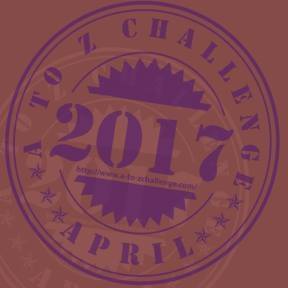I'm still in the midst of doing a contest I haven't actually done yet (shush you, it's a busy time for me and other excuses you don't actually care about). So. If you know people who like free books and other cool free stuff send them my way.
And the second fun thing. Next Friday, as part of this lovely contest, I'm going to do a puzzle post. But I don't know how yet, so if puzzles are a thing you like maybe throw some ideas my way? Otherwise you're likely to get the most archaic, ridiculous crossword puzzle ever invented.
Alright. Now for the giant downer.
Understanding People Who Aren't Me
So we're going to "ignore" all that and pretend we're having a craft discussion about getting over our fear of telling other people's stories wrong.
But first I want you to push play on that video down there. I'll wait for you to be done.
It's painful and visceral. You look at the picture that inspired the poem and every part of it is wrong. How can there be so little concern for the taking of a human life? These people were taken from jail, beaten, and then hanged. Aren't we supposed to have an issue with vigilante justice?
You look at that picture and listen to Billie Holiday sing about living in a country that doesn't count you as a person and...well. I'd like to think it wasn't possible to do those things and not be forced to accept what our connection to race is. But then I remember reading an article where the sheriff in a small town in Missouri was confused as to why his town was upset. "I've always had a good relationship with the blacks," he's quoted as saying. Presumably with no understanding of what's just left his mouth.
So what's that mean for a fiction writer? How do you look down the barrel of that story, from the outside, and get it right? I've never lived in a country where the color of my skin was all someone needed to hate me. To murder me. How do I tell that story?
The tricky part of this is that I don't have an answer. I shy away from those stories, on some level because I think working from the head-space that all that matters to a character's back-story is the color of their skin is wrong. Is just as bad as assuming the only discernable trait about a trans or gay character is their transition or their gayness. Personally, even if we aim for social justice, defining people solely by their otherness is right back to strange fruit swinging in the breeze. I've robbed them of their humanity and made them a statistic, or a skin color, or an exotic animal to be gawked at.
Hand on heart, all of us, right now. I will pledge to do my absolute freaking best not to rob people of their humanity. In fiction and in life.
I do have one small thought I'll share. I'm not a black woman in 1939. I'm not an immortal non-human either. Or a doctor living on some far distant planet a thousand or so years in the future. I firmly believe the point of fiction is to help us understand ourselves better. And to help us understand other people better. When we read--and when we write--we should reach for that other. All of it. No matter how uncomfortable it makes us.
And a thing about life I keep struggling to put into words. Understanding all sides of a situation isn't accepting them or even allowing them. I want to know everything you can tell me about a man who walks into a church, or a school, or a movie theater and pulls out a gun. Not because he deserves to be understood. Because in understanding him we might figure out how to notice/catch/help the next one before people die.
Understanding people who can look at victims--victims of a single act of violence, or police brutality, or an entire history of abuse--and still make a case for it not being a real thing/about that flag/unjust is harder for me. But much as I hate it, I suspect it's just as vital. We have to share a planet with them, and I really don't think it can stay the way it is.
So. That's my epic downer for the week. Friday we're going to talk about something fluffy and fun. Because we can. We deserve for life to be enjoyable any time it can be.
Also, as a tiny note, up there where I'm talking about men walking in places with guns, I almost put 'people' because...well, defining people by their sex is occasionally just as unhelpful as defining them by anything else. But I honestly cannot think of a single instance in my entire life where someone who identified as female walked into some place and started shooting it up. I'm not sure what to do with that bit of information.

 RSS Feed
RSS Feed
